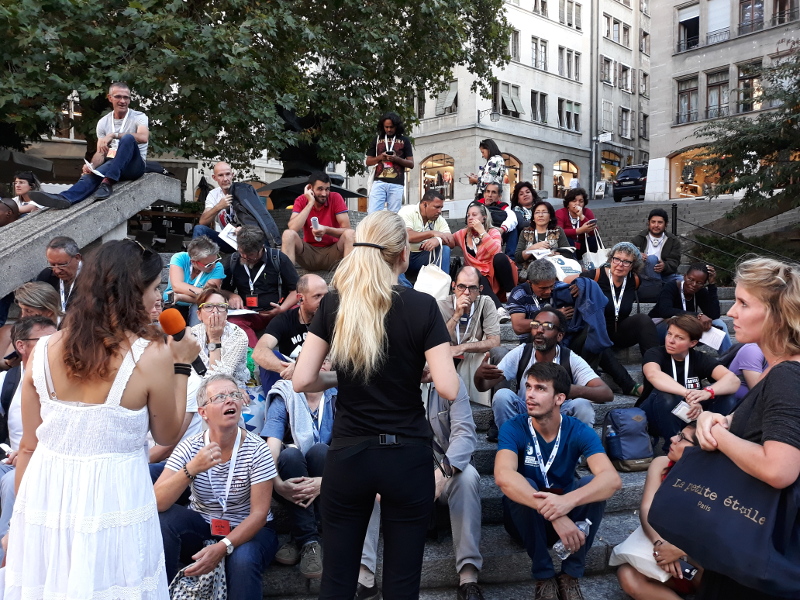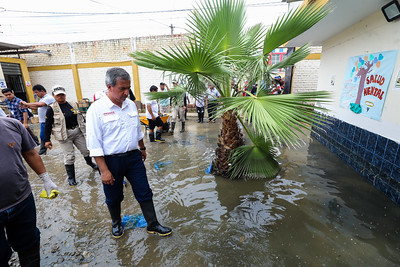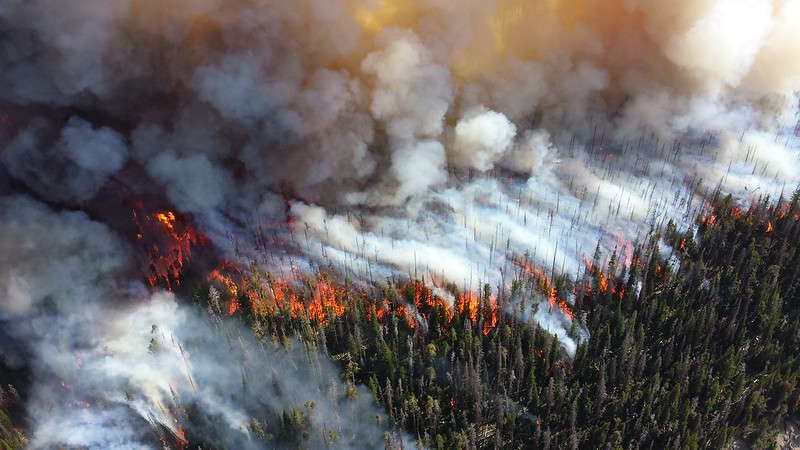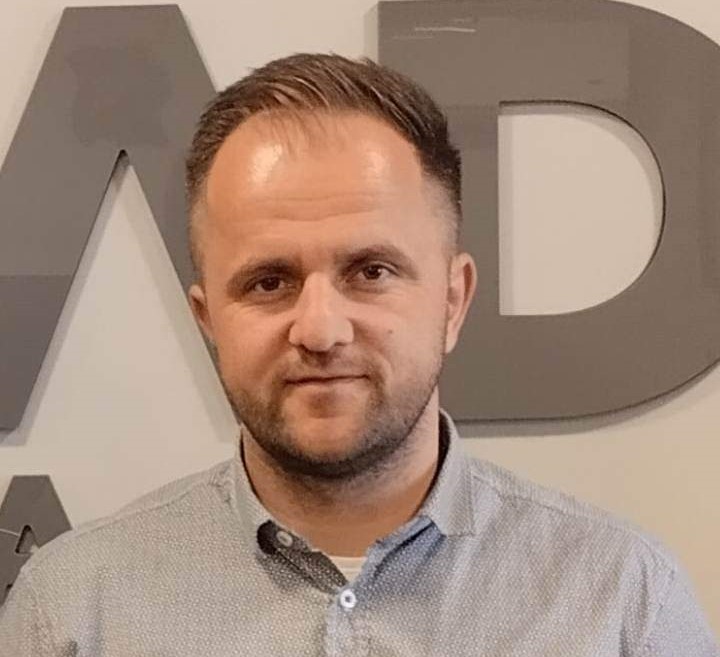Toxic Tour: guided tour of the impunity enjoyed by multinationals in Geneva

Organized by activists fighting multinationals’ impunity, the toxic tour gave about sixty participants the chance to discover the hidden side of some of the big chains based in Geneva: H&M, Engie, BNP Paribas as well as Apple, and their impacts on socio-environmental rights.
This tour, which was attended by members of Emmaus groups from all four continents, falls within the scope of Emmaus International’s struggle for an ethical and solidarity-based economy. Participants stopped at several symbolic locations and were able to find out about the hidden side of some of the biggest chains. An alternative way to visit the city!
“When we talk about corruption, we point the finger at poor countries and their governments, but they are just the tip of the iceberg as they are manipulated by multinationals from our countries. The bulk of corruption is happening here, in Europe.” This explanation, given by one of the Toxic Tour guides. Here are some of the multinationals visited during the Toxic Tour:
Viterra, a large food-processing company specialising in trading grains and seeds, which was bought out by Glencore, the mineral extraction giant and commodity trader, in 2012. Some of Glencore’s exploits when it comes to lack of respect for human rights and the environment are illustrated in Daniel Schweizer’s film Trading paradise, which exposes how the company polluted the soil in Peru and the air in Zambia, led to a proliferation of cancers and the destruction of entire cultures, and seized land belonging to powerless local people.
Formerly known as GDF Suez, Engie is a French energy group which is a leader in pollution, having increased its coal mining activities by 81% between 2009 and 2015. In 2016, investigative programme “Cash Investigation”, broadcast on France 2 (a French public television channel) exposed its role in an epidemic of respiratory diseases in Morwell, Australia. Following a toxic fire at its coal power plant, Engie sent in temporary workers to clean the site, without providing them with masks or any type of protection, resulting in the poisoning and deaths of several people.
H&M: this ready-to-wear fashion company whose headquarters are based in Sweden has not paid taxes since it was established in 1947 and does not protect its employees. It should not be forgotten that collapses at a textile factory used by H&M in Bangladesh led to 21 deaths in 2010 and then more than 1,000 deaths in 2013. The company’s textile factories have been relocated to Cambodia and Ethiopia, where workers can be paid even less than in Bangladesh, and these textile “slaves” work 60 to 72 hours a week for a pittance, as shown by this online documentary from France 24.
Gunvor, an energy and commodity trading company registered in Amsterdam and whose primary operational centres are based in Geneva and Singapore. This company specialises in trading and transporting oil products. It’s the world’s third largest trader in crude oil.
The NGO Public Eye published a report bringing to light Gunvor’s embezzlement of oil revenues in the Congo between 2010 and 2012. When pursued by the Swiss justice system, the company admitted having paid eye-watering bribes to Congolese officials. As for Deutsche Bank, this bank was accused of money laundering in Argentina and of having not paid a billion dollars’ worth of taxes to the Argentine authorities between 2001 and 2008. It was accused of money laundering and insider trading as part of the LIBOR-rigging scandal which also involved Citygroup, Société Générale, JP Morgan, UBS and HSBC. Also involved in the sub-prime mortgage crisis and the Panama Papers, Deutsche Bank was very close to collapse in 2016, but was rescued the following year thanks to support from Qatari funds, the giant asset management company BlackRock and the Chinese group HNA.
Finally, Apple… which pays tax of 0.005% in Ireland and which, in 2012, having made profits of 200 million francs in Switzerland, should have paid 41 million francs in tax but only paid 6.2 million.


